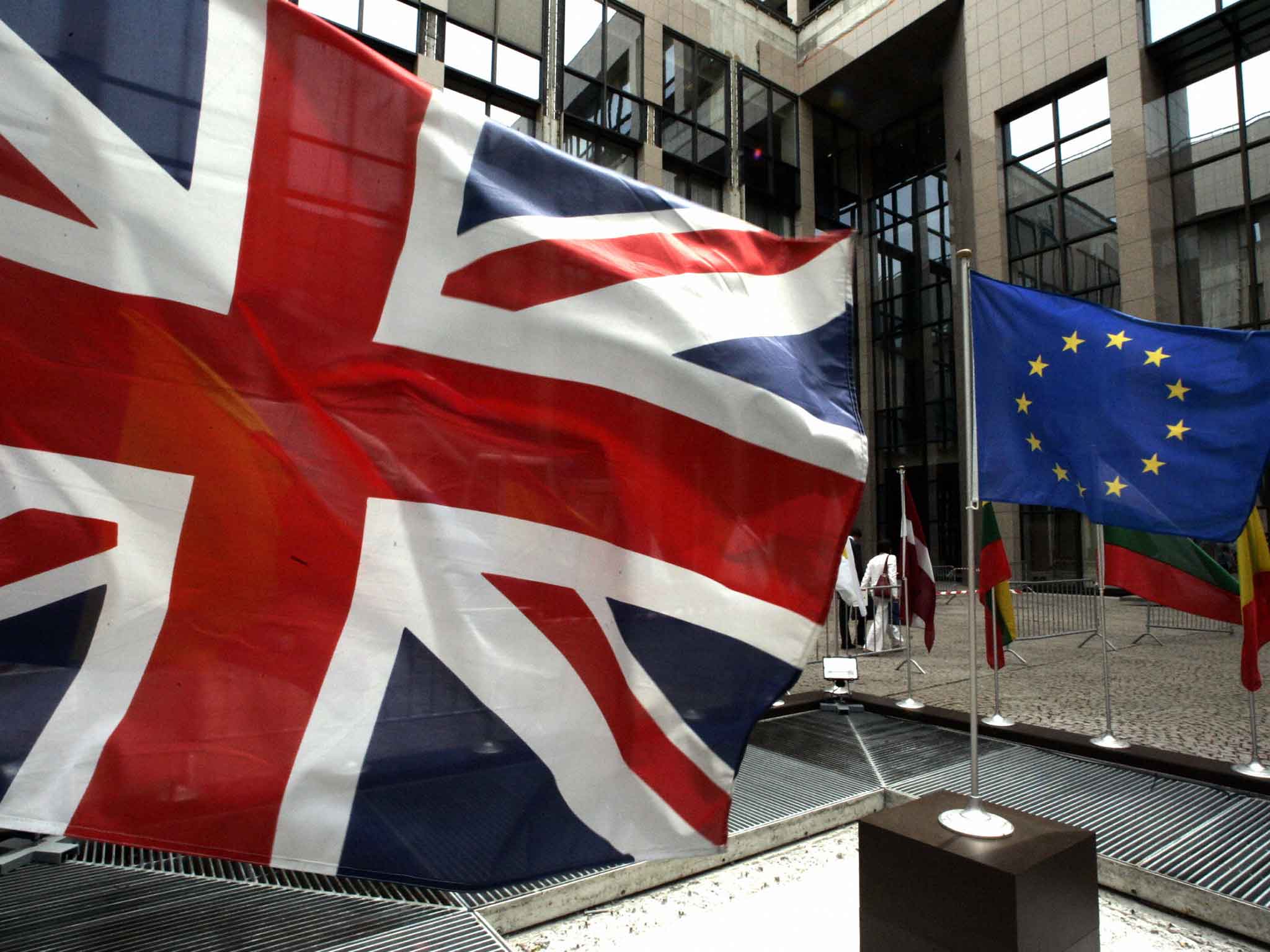Those in favour of a Brexit don't seek 'Rule Britannia' - they have a different way of thinking
The greatest threat to the EU is not Russia, and not the meltdown in Syria and the Middle East, but the possibility of Britain leaving


Before the general election in May, I was reasonably confident that my fellow Britons would vote by a solid margin to stay in the European Union in the event that the Conservatives won and called the promised referendum. Six months on, I am less sure.
Referendums are fickle things. The Outs are likely to be more diligent voters than the Ins, especially if the polls suggest the Ins will win. The In campaign has had a stuttering start, not helped by a slogan that sounds like an advert for soft loo rolls, and a repellent acronym: BSE. Migrants – whether those waiting their chance at Calais or those snaking their way to Germany and Sweden – could have an impact, even though an Out vote could remove EU support and actually make it harder for the UK to stem the flow.
Plus there is the Establishment factor. David Cameron may be able to square his party, but the fewer anti-EU rebels there are on either side of the Commons aisle, the harder the Great British public could be to persuade. The last time they faced an establishment wall was over the Iraq War, and that they have not forgotten. There remains a deep suspicion of cross-party parliamentary consensus.
These doubts about the intentions of UK voters are magnified many times over outside the UK. This time last week I was at the Riga Conference in Latvia, where the concerns uppermost in delegates minds were always going to be the perceived threat from Russia (next door), and the future of Ukraine. And so it proved. But the prospect of Brexit – the UK deciding to split from the EU – was the first question addressed to any British participant, whether on the platform or in the corridors, and it was posed with equal measures of disbelief and alarm.
At the final session, on the future of Europe, the panel were asked what, in their opinion, presented the greatest threat to the EU. The expected answer, given this particular audience and the composition of the panel, was Russia. But Carl Bildt, the former foreign minister of Sweden whose centre-right politics probably situate him pretty close to Cameron, said the greatest threat to the EU was “not Russia, and not the meltdown in Syria and the Middle East, but the possibility of Britain leaving”. He said it forcefully, and without a moment’s hesitation. And the reason he gave was that Brexit “would leave the other crises unmanageable”.
Without the UK, in other words, the international clout, and the capacity for the EU to act beyond its borders, would be diminished. The prospect that the whole European project could unravel, as a British Out vote gave succour to other countries’ Eurosceptics, would come that much closer. So how to persuade the UK to stay?
Jean-Marie Guéhenno, head of the International Crisis Group and former chair of a commission considering the future of French defence, said that more Britons should travel outside the EU, so that they could understand the high regard in which the EU was generally held elsewhere. The UK, France and Germany would all be taken less seriously, if and when they operated separately. Without the UK, the EU’s influence would wane.
I don’t disagree with either of these heavyweight Europhiles. The danger to the authority and even the future of the EU would undoubtedly be real, were the UK – with its economic and military strength – to vote Brexit. But I wonder whether they are completely, on the right track. To be sure, the preservation of British international influence is a component in the arguments of the Ins and the Outs alike. Both nurture a sense that the UK’s international stature has shrunk in recent years, not least because of misfired military adventures.
The Ins maintain that in the future global world, with India and China rising fast, the UK will only be able to project itself abroad if it is part of a much bigger regional grouping. The Outs see it rather differently, but the central idea – that of retaining UK influence – is similar. They say that, as the world’s fifth largest economy, a nuclear power, and a permanent member of the UN Security Council, the UK does not need the EU to be a player. On the contrary, the country would exercise greater influence and be able to take a higher profile if it aligned itself more with the United States and with the Commonwealth, or picked its alliances à la carte. The strains of Rule Britannia are never far away.
But does this account for all the likely Out voters? The idea of regaining Britain’s supposedly lost greatness looms large for many. And some of them are the same people who want the UK to be able to select newcomers according to a Canadian or Australian points system, excluding less qualified Europeans in favour of skilled people from elsewhere. But when Cameron and prominent Europhiles, such as Peter Mandelson, warn that Brexit could relegate the UK to the status of Norway or Switzerland – small countries hamstrung by EU regulation, as open as the EU itself to immigration but without a voice in decision-making – how much of a threat does this seem, especially to younger Britons?
The aversion to new wars (anywhere) – as shown by Cameron’s awareness that he still cannot win a parliamentary vote on intervention in Syria – Labour’s election of Jeremy Corbyn, and the new debate over the renewal of Trident – might all be interpreted as evidence of a desire for a lesser role in the world. It speaks of a different, less military role, at the least.
All of which is a long way of saying that the notion of preserving British influence abroad may not be the winning argument. Those of us committed to staying in need to consider that some people may be tempted to vote Out – not to turn up the volume on Rule Britannia or send poorer EU workers packing, but because they see an Out vote as a way of saying that they would prefer to live in a middle-ranking country that recognises its limitations.
Join our commenting forum
Join thought-provoking conversations, follow other Independent readers and see their replies
Comments
Bookmark popover
Removed from bookmarks